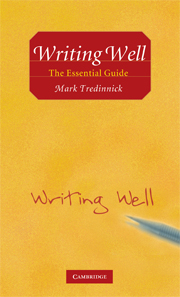Chapter 4 - POETICS
On creative writing
Summary
All my writing is plagiarized, but not from books.
kim staffordCreative writing is communication through revelation – it is the Self escaping into the open.
e. b. whiteWarning
This chapter's about writing as an end, not a means; it's about writing when the point is not really the point. It's about writing as art, not craft. It's for the writer as artist.
If that's not you, you might want to turn to the next chapter. I say some things here that might shock. Some, even, that pretty much contradict things I've said so far.
Writing as an art, like all arts, puts familiar materials to strange uses. It breaks rules (though not all of them, not if it's any good). In particular, it should not try to make itself perfectly plain; it should come at things from an angle; it should leave a lot of things unsaid and unseen. In common with functional writing, however, creative writing must observe the disciplines of syntax and style. It must have voice and rhythm. Music, now, is even more the point. In a word, like all writing, creative writing needs technique. A fancy story, a hip subject, a fashionable attitude, some crazy characters, sex, and a sting in the tail won't be enough.
This is a chapter for essayists, memoirists, novelists, short-story writers, and poets. It won't cover everything, but it shares some thoughts that have saved my writing life.
- Type
- Chapter
- Information
- Writing WellThe Essential Guide, pp. 134 - 182Publisher: Cambridge University PressPrint publication year: 2008



